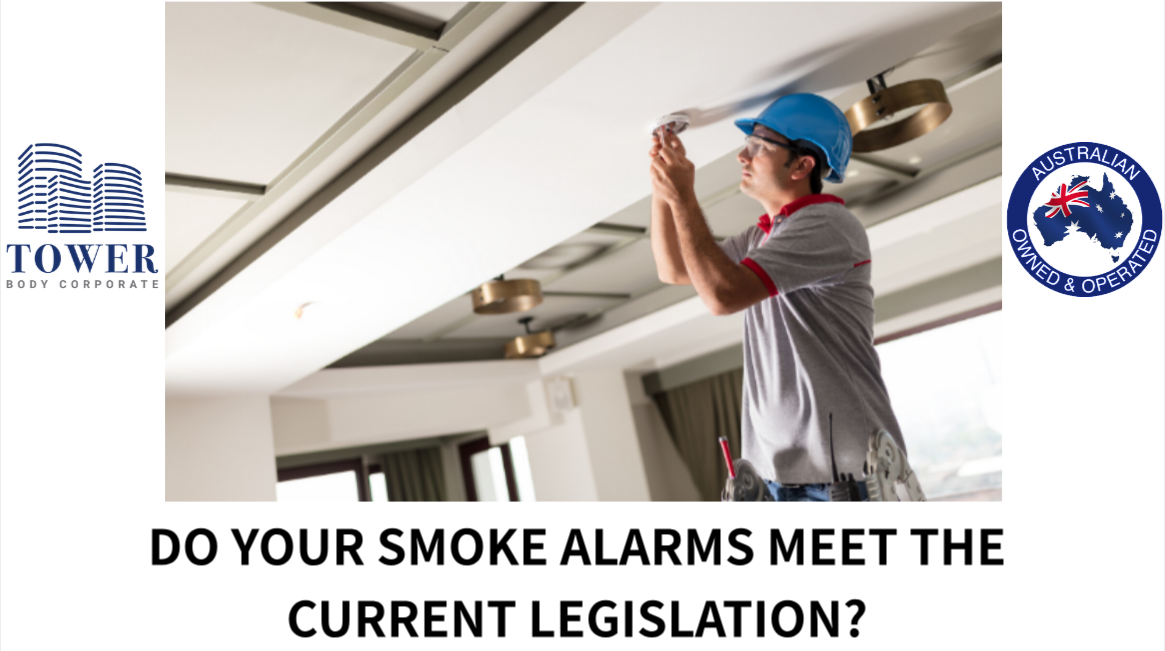Too often we read about the costly and sometimes tragic consequences around the issue of smoke alarms. The simple fact is, alarms need to be tested on a regular basis, replaced when required, and never disengaged – regardless of how noisy they are! In Queensland, all units and homes need to be fitted with working smoke alarms by law. Smoke alarm legislation in Queensland is an important part of your body corporate services and must be carefully adhered to and is something that we take very seriously.
Current Legislation
The current legislation in Queensland states that homes built before 1 July 1997 must have at least one 9-volt battery-operated smoke alarm and homes built or significantly renovated after 1 July 1997 must have a 240-volt (hard-wired) smoke alarm.
New Legislation
The new legislation released in 2016 also specifies that all Queensland dwellings must eventually have “interconnected photoelectric smoke alarms in all bedrooms, in hallways that connect bedrooms with the rest of the dwelling and on every level”. This affects certain dwellings differently, and a 10-year phased rollout will happen over three specific periods starting from 1 January 2017. In summary, in order to comply with smoke alarm legislation:
- From 1 January 2017 – these new smoke alarms are installed in all new dwellings and substantially renovated
dwellings (which applies to building applications submitted from 1 January 2017). - From 1 January 2022 – they are installed in all domestic dwellings, both leased and sold.
- From 1 January 2027 – they are installed in all other domestic dwellings..
Legislation by dwellings
In terms of smoke alarm legislation for existing dwellings, as of 1 Jan 2017 replacement smoke alarms should now be of a photoelectric type which complies with Australian Standard (AS) 3786-2014. Existing smoke alarms manufactured more than ten years ago should already have been replaced, and existing hardwired smoke alarms that need replacement should be replaced with a hardwired smoke alarm.
As of 1 Jan 2027, smoke alarms must also:
- Be photoelectric (AS 3786-2014); and
- Not also contain an ionisation sensor; and
- Be less than 10 years old; and
- Operate when tested; and
- Be interconnected with every other smoke alarm in the dwelling so all activate together.
Smoke alarms must also be installed on each level and:
- in each bedroom; and
- in hallways which connect bedrooms and the rest of the dwelling; or
- if there is no hallway, between the bedrooms and other parts of the storey; and
- if there are no bedrooms on a storey at least one smoke alarm must be installed in the most likely path of travel
to exit the dwelling.
Smoke alarms must also be either hardwired or powered by a non-removable 10-year battery, except for new dwellings or those being substantially renovated (please refer to below).
In terms of dwellings being sold, leased or an existing lease is renewed, from 1 January 2017 existing landlords’ and tenants’ obligations regarding smoke alarms continue. Property sellers must continue to lodge a Form 24 with the Queensland Land Registry Office stating that the requirements of the smoke alarm legislation have been met. From 1 January 2022, smoke alarms in the dwelling must also comply to the terms listed under Existing Dwellings above.
When it comes to new dwellings or dwellings being substantially renovated, from 1 January 2017 the development approval process should ensure that building approvals received on or after this date will bring dwellings into compliance with the new laws. From 1 January 2017, smoke alarms in the dwelling must comply to those listed under Existing Dwellings above, with the exception of Point 3. In this instance, smoke alarms in the dwelling “must be hardwired to the mains power supply with a secondary power source (i.e. a battery)”.
Need more information?
For specific information about the legislation around smoke alarms in Queensland, the best place to start is with your strata management body. The Queensland Government website and the Queensland Fire and Emergency Services website can also provide more information, including a glossary of building and smoke alarm terms.
Alternatively, you can send us your question and we will back to you shortly.

